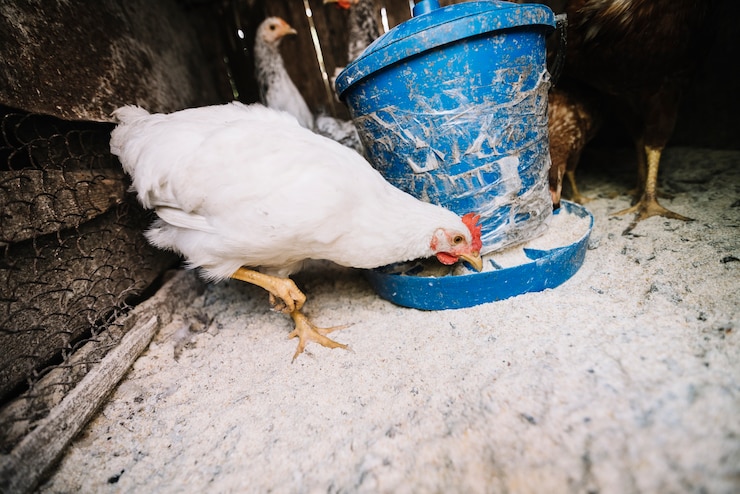Raising broiler chickens can be a rewarding venture, but it can also be frustrating when you notice that your birds are not growing as expected. Broiler chickens are specifically bred for fast growth and efficient meat production, so it is essential to address any growth issues promptly. In this article, we will explore some common reasons why your broiler chickens may not be growing and offer potential solutions.
- Inadequate Nutrition: Nutrition plays a critical role in the growth and development of broiler chickens. If your birds are not receiving a well-balanced and nutritionally dense diet, it can hinder their growth. Ensure that you are feeding them a high-quality commercial broiler feed that meets their nutritional requirements. Monitor the feed intake to ensure they are eating enough and adjust the feeding program if necessary.
- Poor Feed Quality: The quality of the feed you provide to your broiler chickens is crucial. If the feed is of low quality or has been contaminated, it can negatively impact their growth. Ensure that the feed is fresh, free from mold or pests, and stored properly to maintain its nutritional value. Consider working with a reputable feed supplier to ensure consistent quality.
- Health Issues: Health problems can significantly affect the growth of broiler chickens. Diseases, infections, or parasitic infestations can result in poor growth rates. Common health issues include respiratory infections, coccidiosis, Newcastle disease, and others. Regularly monitor your birds for any signs of illness, such as lethargy, decreased appetite, abnormal droppings, or respiratory symptoms. If you suspect a health issue, consult with a veterinarian to obtain an accurate diagnosis and implement the appropriate treatment.
- Environmental Factors: The environment in which your broiler chickens are raised can impact their growth. Poor ventilation, extreme temperatures, high humidity, overcrowding, or stressful conditions can hinder their growth. Ensure that the broiler house is properly ventilated, clean, and well-maintained. Provide adequate space for the birds to move around comfortably and ensure appropriate temperature and humidity levels.
- Genetics: Genetics also play a role in the growth potential of broiler chickens. If you have chosen a breed or strain with lower growth rates or less efficient meat production, it can impact their growth performance. Ensure that you select broiler chicks from reputable breeders or hatcheries known for producing high-quality and fast-growing birds.
- Water Quality: Water quality is often overlooked but is crucial for optimal growth. Poor-quality water, contaminated with bacteria, chemicals, or toxins, can negatively affect your broiler chickens’ growth and overall health. Ensure that the water is clean, free from contaminants, and readily available to the birds at all times.
- Management Practices: Inadequate management practices can also contribute to poor growth in broiler chickens. Lack of proper supervision, insufficient lighting, improper litter management, or failure to provide adequate biosecurity measures can hinder growth. Ensure that you have a comprehensive management plan in place, follow best practices, and monitor the flock regularly.
There are several factors that can contribute to poor growth in broiler chickens. By addressing issues related to nutrition, feed quality, health, environment, genetics, water quality, and management practices, you can improve the growth and performance of your broiler flock. Regular monitoring, timely intervention, and consulting with poultry experts can help identify and resolve growth issues, ensuring the success of your broiler farming venture.
Join 'Farmers Mag' WhatsApp Channel
Get the latest Farming news and tips delivered straight to your WhatsApp
CLICK HERE TO JOIN






